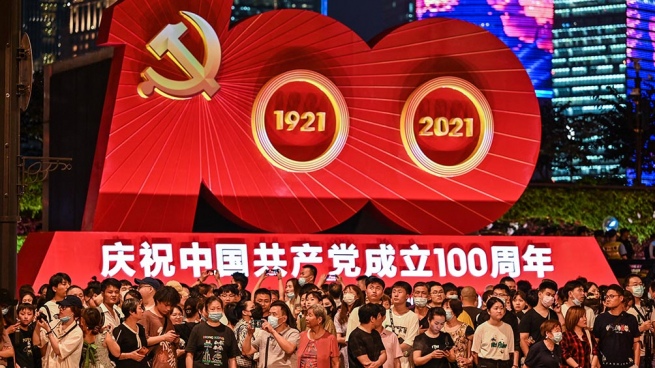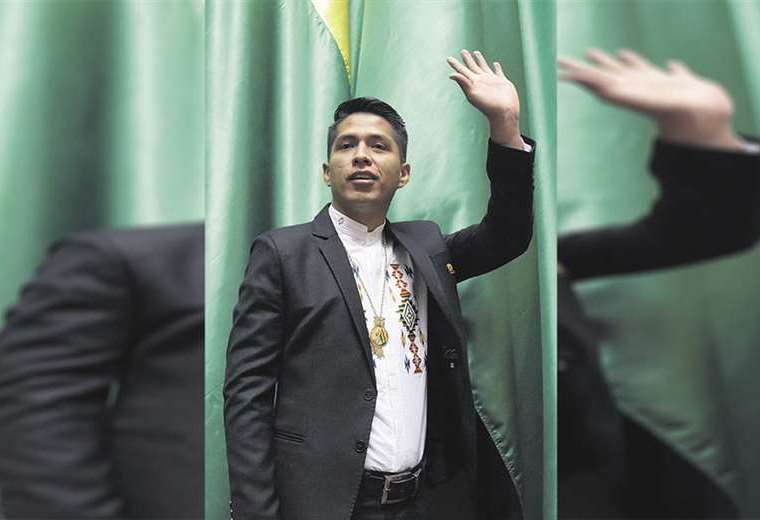The XX Congress of the Communist Party (PCCh) that will take place from October 16 will mean a pivotal moment in the history of the People’s Republic of China (PRC). If Xi Jinping were to be elected to a third term, it would mean a fundamental transformation of the Chinese political system that has been in place since post-1989. To better understand its significance, a brief review of the nature of the political leadership of the PRC up to the present is necessary.
The death of Mao Zedong in 1976, father of the country and undisputed leader of the country for almost three decades, left unresolved issues regarding the model of political succession. After a short but intense dispute over power, the new ruler Deng Xiaoping would emerge, a comrade of Mao and also a member of the First Generation of Leaders.
With the intention that no one would concentrate power again as Mao had done, Deng used his undisputed authority to formally distribute power among a handful of successors with the aim of establishing the Second Generation of Leaders as a collective leadership. In turn, in order to reinforce his ambitious policies of market reform and economic opening, Deng elevated two rather “liberal” (ie pro-reform) cadres: Zhao Ziyang and Hu Yaobang.
Having secured the inauguration of his protégés, Deng balanced between the factions of young reformers charged with carrying out the opening and the so-called Eight Immortals, a prominent, more conservative group of First Generation Party leaders who maintained a high level of influence and sought to regulate the speed of transformations.
The accelerated changes that Chinese society went through throughout the 80’s generated social forces that would end this model and the perspectives of the Second Generation of Leaders. In fact, it was Hu Yaobang’s funeral in 1989 that triggered the Tiananmen protests, which led to Zhao Ziyang’s downfall.
The harshly suppressed Tiananmen protests, and the parallel disintegration of the Socialist Bloc led by the Soviet Union, led to a sudden reorganization of the Party’s top cadres. An older Deng Xiaoping had to, for the second time in 10 years, try to resolve the complex and sensitive issue of national leadership succession; leading to a transition period that lasted between mid-1989 and early 1993.
From this crisis emerged the Chinese political model in force until today. From this moment on, the undisputed leadership of the PRC would be exercised by the man who simultaneously held three key positions, throughout two consecutive five-year terms: General Secretary of the Communist Party, President of the People’s Republic, and President of the Central Military Commission.
The first to play this triple role was the charismatic former mayor of Shanghai, Jiang Zemin; member of the Third Generation of Leaders who guided the country through the heady 1990s. While this secured the power succession that Deng had been rehearsing since the previous decade, the consolidation of Jiang (who by 1993 had completed this transition) marked the end of the shared power model that Deng had tried to structure during the 1980s.
In the early 2000s, Jiang would be succeeded by Hu Jintao, a low-key technocrat, member of the Fourth Generation of Leaders, who was anointed as successor by Deng Xiaoping before his death in 1997. Within the framework of the story of the PRC, the transition was unusual for two main reasons. In the first place, it was the first succession not supervised by any of the “fathers of the country”, of the First Generation of Leaders. Second, it was carried out without any crisis or purge of members of the leadership.
The more apolitical and technocratic character that Hu maintained throughout his government seemed to indicate that the political culture of the PRC was moving away from the charismatic leadership of Mao and Deng (and, to a lesser extent, Jiang) giving way to a system of collective government, in which the leader was a primus inter paris.
Hu’s presidency, which ushered in a prolonged period of political stability in years of rapid growth and key internal transformations, also created a certain vacuum as it drew to a close. Growing economic prosperity had guaranteed peace, but had not generated a new ideological framework to take the place formerly occupied by the abandoned Maoist revolutionary fervor. This posed a complex problem for a government system that was well aware that its legitimacy could not rest exclusively on its ability to continuously provide its population with positive economic results.
This tension was heightened, in 2012, by the fall of Bo Xilai, a prominent Party member who positioned himself as Hu’s successor until he was sentenced to life in prison for corruption crimes. Despite this, the transfer of command took place towards the end of that same year without major shocks. Between November 2012, when he took office as General Secretary of the Party and Chairman of the Central Military Commission, and March 2013, when he took office as President of the People’s Republic, Xi Jinping quickly accumulated the three titles that gave him the undisputed leadership of his country. without major inconvenience.
Since its inception, Xi, a representative of the Fifth Generation of Leaders and a member of the so-called red nobility (his father, Xi Zhongxun, was a high-ranking Party leader from the first hour), sought to counteract the ideological corrosion resulting from the penetration of consumerism. and the growth of inequality, through the development of an integrating and coherent discourse, which managed to disarm the underlying social tensions. He placed Marxism-Leninism and Socialism with Chinese Characteristics not as a rupture but as a continuation of the long and “beautiful Chinese cultural tradition”, in order to build a coherent historical line, reinforced by a third ideological pillar: the resurgence of nationalism. Chinese.
As Xi Jinping neared the end of his first term in 2017, the Chinese president was at a career high, having successfully led his nation amid an increasingly bleak global backdrop. Thanks to this, in October of that year, on the occasion of the XIX National Congress of the Party, it managed to take an unexpected turn that would have far-reaching political and ideological consequences for the development of the PRC: a reform of the Party Constitution for the inclusion of Thought. Xi Jinping on Socialism with Chinese Characteristics for the New Era. That is, the articulation of the president’s political-economic ideology and his national project. Only the ideas of two leaders had been incorporated in this way: Mao Zedong Thought, at the 8th Party Congress in 1945, and Deng Xiaoping Theory, at the 15th Party Congress in 1997; a few months after his death.
Consequently, the canonization of Xi Jinping Thought can be defined both as an elevation of the Chinese president’s theoretical contributions, which place him on a plane above his immediate predecessors (that is, Hu Jintao and Jiang Zemin), as well as a acknowledgment of the factual particularities of Xi’s leadership. Speculation about how this doctrinal recognition would be translated into politics was answered in March 2018 during the annual session of the National Popular Assembly, when the limit of two presidential terms was eliminated.
Thanks to this, Xi came to have the ideological legitimacy and the legal mechanisms to open a new chapter in the history of the political leadership of the PRC; a chapter that probably begins to be written with the beginning of the XX Congress.
















